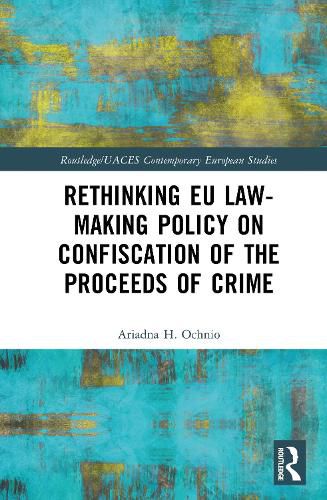Readings Newsletter
Become a Readings Member to make your shopping experience even easier.
Sign in or sign up for free!
You’re not far away from qualifying for FREE standard shipping within Australia
You’ve qualified for FREE standard shipping within Australia
The cart is loading…






The book provides a critical analysis of EU law-making policy on the confiscation of the proceeds of crime, using a minimalist restorative approach to justice focused on the rights of victims and communities, and more proactive roles for all participants in confiscation procedures.
This book shows how the examined policy has been translated into the EU law standards adopted as its realisation, and whether the gaps identified in these standards are reflected in the domestic law of the comparator EU jurisdictions (Poland, Germany, and France). The post-conviction confiscation regime in England and Wales is also explored as an example of an alternative non-EU model of value-based confiscation. Considering the complex juridical nature of confiscation, which challenges the applicability of the civil-criminal dichotomy, this book recommends a two-fold approach when shaping EU confiscation mechanisms, focused on linking policy objectives with a restorative approach to justice, and making the appropriate choice of criminal or civil routes for confiscation.
This book will be of key interest to scholars, students and practitioners in EU policy and law, criminal law, EU and national law on confiscation, EU criminal justice policy, and more broadly to European studies, criminology and international organisations.
$9.00 standard shipping within Australia
FREE standard shipping within Australia for orders over $100.00
Express & International shipping calculated at checkout
The book provides a critical analysis of EU law-making policy on the confiscation of the proceeds of crime, using a minimalist restorative approach to justice focused on the rights of victims and communities, and more proactive roles for all participants in confiscation procedures.
This book shows how the examined policy has been translated into the EU law standards adopted as its realisation, and whether the gaps identified in these standards are reflected in the domestic law of the comparator EU jurisdictions (Poland, Germany, and France). The post-conviction confiscation regime in England and Wales is also explored as an example of an alternative non-EU model of value-based confiscation. Considering the complex juridical nature of confiscation, which challenges the applicability of the civil-criminal dichotomy, this book recommends a two-fold approach when shaping EU confiscation mechanisms, focused on linking policy objectives with a restorative approach to justice, and making the appropriate choice of criminal or civil routes for confiscation.
This book will be of key interest to scholars, students and practitioners in EU policy and law, criminal law, EU and national law on confiscation, EU criminal justice policy, and more broadly to European studies, criminology and international organisations.